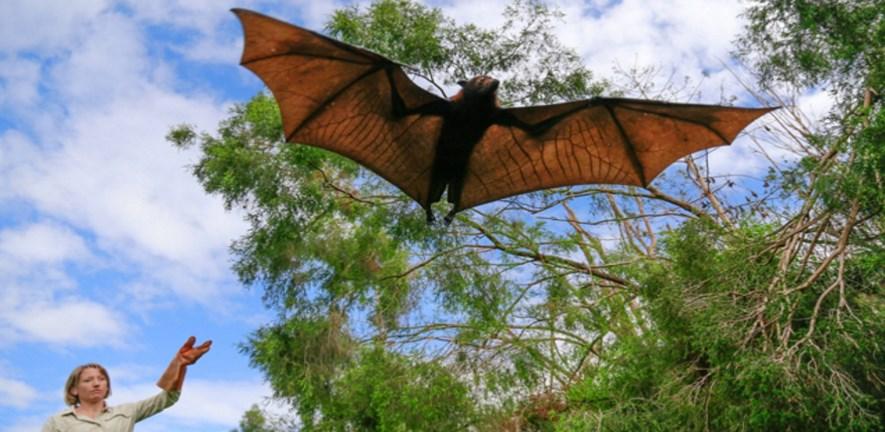
Submitted by Administrator on Mon, 02/10/2017 - 15:41
12 Sep 2017 - The USA National Science Foundation (NSF) has awarded $1.65 million to a One Health bat research project on which co-investigator Dr. Olivier Restiff (UoC/CIDIRC) will explore disease in relation to landscape change.
The US National Science Foundation has awarded a $1.65 million grant to an international group of researchers to study how human behavior contributes to the spread of emerging infectious diseases. Led by Dr Raina Plowright (Montana State University) with Dr Olivier Restif (University of Cambridge) and researchers from three continents, the multidisciplinary consortium involves 10 academic institutions and a nonprofit agency. The project focuses eastern Australia, where there has been an influx of fruit bats into towns and cities, while Hendra virus has been spilling over from fruit bats into horses and people for nearly 20 years.
Dr Restif, who is the Alborada Lecturer in epidemiology at the Department of Veterinary Medicine, will lead effort into the mathematical modelling of this complex ecological system, to understand how bat-human conflicts over land use shape the risk of zoonotic virus spillover. "Importantly, the goal of the project is to deliver effective, evidence-based policies that will protect both public health and bat conservation," said Dr Restif. "All around the world, bats provide vital functions for ecosystems, but they are increasingly threatened by the degradation of their natural habitat. This in turn leads to greater risk of spillover of zoonotic viruses from bats to domestic animals and people, as bats are forced to reside closer to urban areas."
“Periodic food shortages, combined with the deforestation of winter habitat of fruit bats, has sent the flying mammals into towns and cities looking for food,” said Dr Plowright. Hendra virus can cause death in horses within days to weeks of initial contact, and bring about flu-like or neurological symptoms in humans that is usually fatal. “There is a Hendra virus vaccine for horses that is highly effective, yet it’s not being widely used,” Plowright said. “There is very poor uptake of vaccinating horses. For some horse owners this is due to lack of awareness about the risks of Hendra virus, and for others it is because of an anti-vaccination movement.”
Dr Restif added "this is a fantastic opportunity to demonstrate the value of a One Health approach to tackle a complex and urgent problem. Epidemiologists, veterinarians, ecologists, social anthropologists and conservation NGOs will for the first time work hand in hand to develop sustainable solutions to the Hendra virus threat. These solutions have to be not only backed by science, they also have to be feasible and supported by policymakers and affected communities."
NSF award details: https://nsf.gov/awardsearch/showAward?AWD_ID=1716698
Photo credit: Raina Plowright.
Caption: Dr Alison Peel (Griffith University) releasing a bat during field work in Australia.

